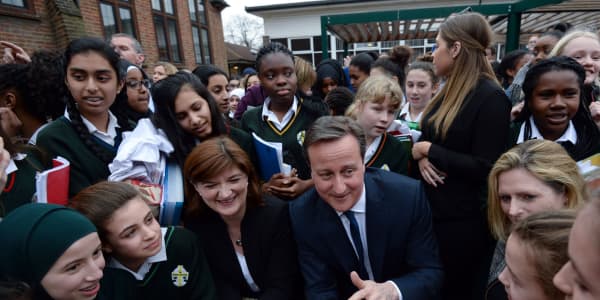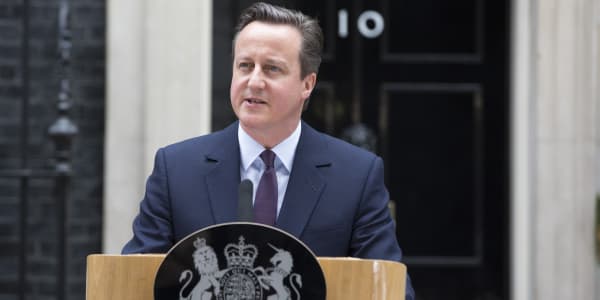Young people in the U.K. in 2015 are "significantly worse" off than they were a decade before, according to a new study, as many prepare to vote for the first time in May's crucial election.
The financial situation of 18-24-year-olds has worsened across almost all key indicators between 2005 and 2010, according to a study by the Intergenerational Foundation, a U.K.-based charity focused on the rights of younger generations.
Part of the problem is that young people are less likely to vote, so politicians are less likely to target them. In the last UK election, in 2010, only 55 percent of 25-34 year olds and 44 percent of 18-24 year olds voted. Yet an increase in voting levels by 10 percent could unseat 83 MPs, according to research by the IF.
There is one key indicator which is a bright spot: the number of people of this age who are unemployed has decreased since 2010, despite a difficult economic period. This may be partly due to the increase in more flexible, but less secure, "zero hour contracts."
"It's hard to escape the conclusion that the interests of the young have been systematically sacrificed over the previous 10 years. It is a bitter irony that older generations will mainly determine the outcome of this election while the younger generation will bear the burden of paying for their excesses," Angus Hanton, co-founder of the Intergenerational Foundation, said in a statement.
Read MoreUK Budget: Get set for pre-election giveaways?
Whether this will bring them out in droves to vote in May is one of the biggest unknowns around the election.
Here are a few charts illustrating why young people in the U.K. may be justified in feeling worse off than previous generations.
There aren't as many houses being built...
One thing on which all the main political parties agree ahead of the election is the U.K.'s need to build more houses.
The level of housebuilding plummeted after the credit crisis, but has yet to see the expected cyclical rebound. This has helped keep house prices high in London and the South-East in particular, pricing many first-time buyers out of the market - and even government schemes like Help-to-Buy haven't solved the problem.
And rents are rising
The unabated rise in rents will make it more difficult for young people to save the money needed to fund a house purchase.
Younger people's jobs are often less secure
Zero-hours contracts - where employees are not guaranteed a set number of hours or any sick pay - have become increasingly popular in the past few years. As you can see here, they are much more common for people working less than one year in a job, who are much more likely to be young - those aged between 16 and 24 account for a third of these kinds of jobs.
These contracts helped give employers much-needed flexibility during the lean years, but increasingly eyebrows are being raised about them in the U.K. and Labour Party leader Ed Miliband has claimed they have "no place in the 21st century."
...and less well paid
Most of the U.K.'s voters have seen their "real median wages" squeezed by the economic downturn and austerity - but some have been worse hit than others.
The real median wage of those aged 22 to 29 fell 12.7 per cent between 2009 and 2014, according to research by think-tank the Resolution Foundation. In contrast, the median employee over 60 only suffered a squeeze of 3.9 percent. Younger workers may think that we're not really "all in this together," as Prime Minister David Cameron said just after gaining office.
Pension spending
The annual bill for pensions in the U.K. just keeps growing - and is unlikely to start shrinking any time soon. The Conservative Party, which traditionally gains a lot of votes among pensioners, has already announced headline-grabbing measures for pensioner bonds. There may be more pension assistance along in Wednesday's Budget, too.
- By CNBC's Catherine Boyle





